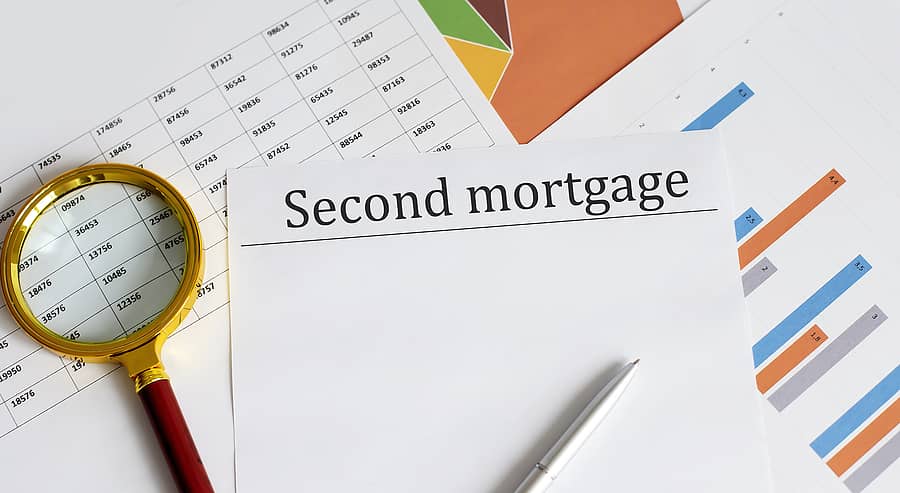Being a homeowner fills most Ontarians with pride. Besides those few individuals that can afford to pay for their home outright, Ontario homeowners will need to approach a lender to take out a principal mortgage on their property. This First Mortgage or Primary Mortgage loan represents a long-term loan that is leveraged against the house and is designed to be paid off over a long period. Typically, first mortgage term lengths are between 20 to 30 years.
The homeowner is expected to pay back the principal of the loan including any accruing interest for the full-term length of the loan or until the mortgage can be paid off in full. Even if the homeowner uses existing equity built in their home to take out other secured mortgages leveraged against their property, the primary loan is always paid first.
The First Mortgage represents the cost of the house itself, less the down payment that was put towards the initial purchase of the home. Technically a homeowner does not own their home until this principal mortgage is fully paid off to the prospective lender.
Can You Access Equity to Leverage Other Loans Against your Home?
As this principal loan is paid off over time, equity is slowly built up in the property. With increasing equity, a homeowner can choose to access this money to pay for unexpected expenses or to perhaps consolidate other household debt or utilize the equity to pay for much-needed renovations.
So, what exactly is a second mortgage? Regardless of how the equity is eventually used, with sufficient equity a Second Mortgage can be leveraged on the existing property. A second mortgage can be defined as a loan secured by the property in addition to the primary loan.
The second loan is leveraged against a property that already has an existing mortgage loan. There are various types of loans that are considered second mortgages including home equity loans, Home Renovation Line of Credit (HELOC), and consolidation loans for example.
If you are wondering if you will be eligible to take out an additional mortgage on your home tapping into existing equity, the answer lies in the degree of equity that you have acquired, your household debt ratio, creditworthiness as well as your current salary.
Banks may have very stringent criteria when determining mortgage eligibility with often impossible to meet criteria including demanding near-perfect credit, substantial salary, and low debt ratio. There are other lending options available to enable an Ontario homeowner to take out various types of second mortgages on their properties despite damaged credit, self-employed income, and higher household debt ratios.
In Ontario, there is a wide network of private lenders who will be able to negotiate short-term second mortgage options with those homeowners with poor credit and may have been turned down by the banks and big lenders.
Just as is the case with the principal mortgage, private lenders will negotiate specific terms for your second mortgage. Lenders will determine how much the loan amount will represent, for how long the loan will be lent out, the associated interest rates, and any fees associated with the second mortgage loan.
Typically, an Ontario homeowner can expect to pay between 7% and 12% interest which is higher than the banks will be charging. Banks have the luxury to offer very low rates because mortgage loans are based on near-perfect credit, substantial income, additional demonstrated assets as well as low levels of existing household debt.
Fees are also lower with bank loaned second mortgages. A private lender will charge between 3% to 6% of the total cost of the second mortgage loan. The length of most privately negotiated second mortgages is between 1-3 years.
The shorter length of the secondary mortgage will enable to pay off immediate expenses for an Ontario homeowner while giving the necessary time to restore credit enabling the terms of any additional mortgage loans to be on the best terms for the homeowner.
Private lenders will rely on the appraised value of the property and calculate its Loan to Value (LTV). A private lender will generally not loan a second mortgage over 75% LTV ( or 75% of the appraised value of the property.) These lenders will also require that an Ontario homeowner has at least 25% equity in their home. Occasionally, an LTV of over 75% can be negotiated by a private lender.
Does a second mortgage hurt your credit?
It may run contrary to what you would initially think but taking out a second mortgage on your property will help restore your credit over time. While taking out a secondary loan may lower your credit score slightly at the outset of the loan, if this loan is paid on time every month then you are building a solid credit history with this new loan which will increase your creditworthiness overall.
By reliably paying, your credit score will also increase, making the possibility of taking out future loans with favorable terms far more possible for the Ontario homeowner struggling with poor credit.
Can you use a second mortgage to pay off the first mortgage?
A second mortgage can be used for many different purposes, however, while it can be used to pay off a portion of your principal loan, it is intended to be used for other debts and financing needs including:
- Home renovation costs
- Consolidation of existing household debt into one easily manageable monthly payment
- Pay for tuition or the needs of adult children such as helping with a down payment on their first home
- To put towards much-needed fixes on your property
- Personal financial needs
What is the difference between a 2nd mortgage and refinancing?
It is important to make a distinction between refinancing and a second mortgage. A second mortgage is an additional mortgage taken out on your property which already has a principal mortgage associated. A second mortgage can provide welcome funds for financial obligations utilizing existing equity. A second mortgage will in other words help finance your primary loan by providing more funds.
Refinancing, however, is changing the terms of your existing loan such as lowering interest rates or extending/shortening the term length which in turn changes the amount the monthly mortgage payment represents.
A second mortgage can however provide money to help cover the costs of your primary mortgage more comfortably if you are in danger of not being able to make your monthly payments reliably.
How much deposit do I need for a second mortgage?
While a down payment is necessary for a principal mortgage leveraged on a given property, a second mortgage is based on the existing equity in a home. A lender will be calculating the Loan-To-Value on your property to determine how much can be loaned out A lender will also be looking to see that you have at least 25% equity built in your home to base the loan on. So a deposit or down payment of some form is not necessary when negotiating a secondary loan on a given property.
Is it easier to get a mortgage the second time?
This question can only be answered by your unique financial circumstances. Similar to a primary loan, credit score, income, assets, LTV, and current appraisal of a property are all taken into consideration. If credit remains strong, income is sufficient then obtaining a second loan with a bank will most likely be fairly straightforward.
In the case of those homeowners with damaged credit and gaps in income then a private lender will be the lender able to negotiate a secondary mortgage on your property by relying more on the equity and LTV assessed on your home. Regardless of whether you are applying for a first or second mortgage, as always overall financial standing will play a very big part when determining mortgage loan eligibility.
Mortgage Broker Store is Here to Help In Your Second Mortgage Financing Goals
Second Mortgages can provide borrowers with financial flexibility by taking advantage of funds built up in their own homes. Life can throw some curveballs and the ability to access equity to obtain a second mortgage can help provide financial peace of mind. Mortgage Broker Store works with a network of private lenders across the country and is more than happy to guide you in important decisions that you will be making during the private lending process. Feel free to contact us at your convenience to help facilitate your second mortgage goals.



